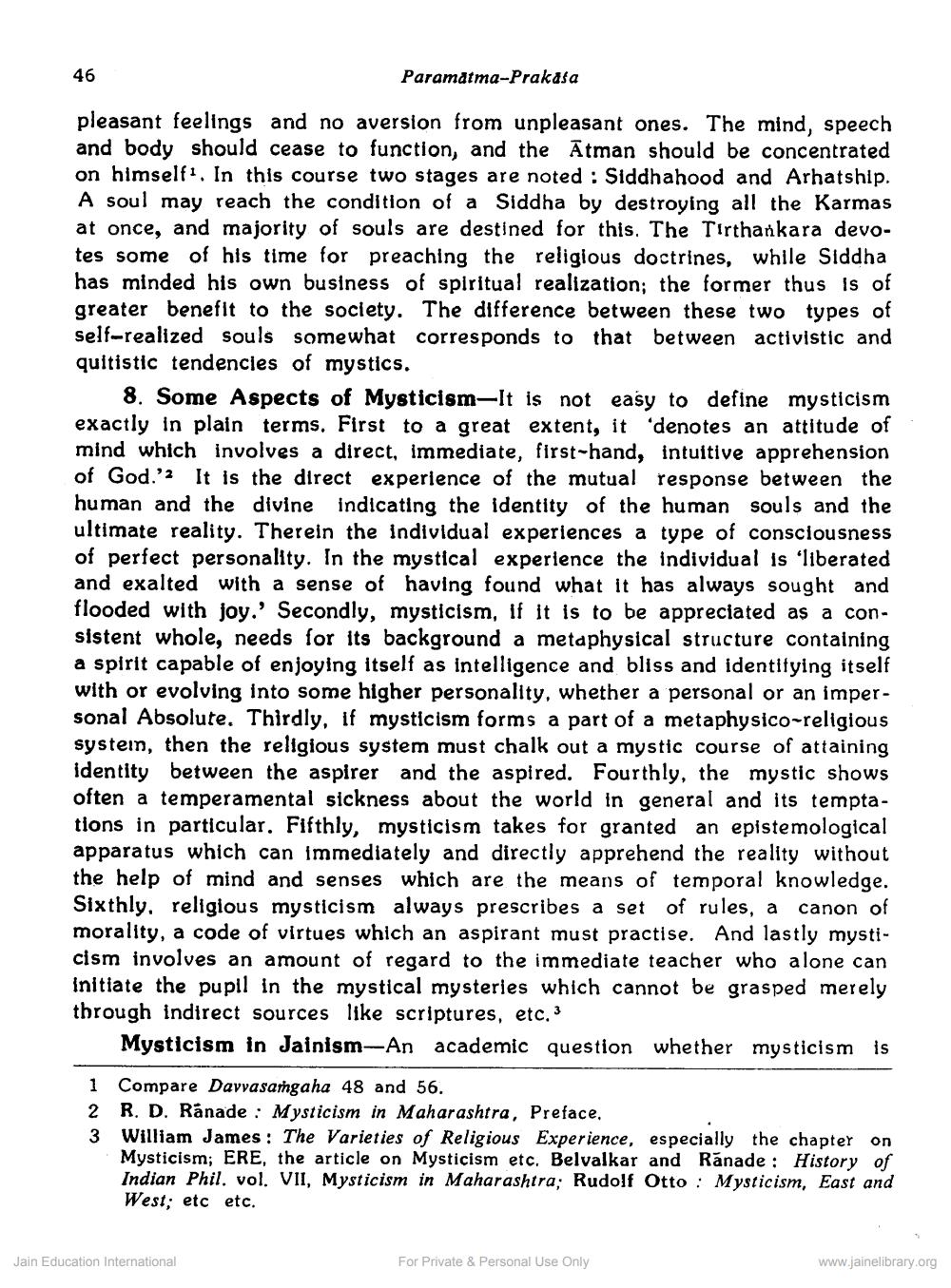________________
46
Paramatma-Prakasa
pleasant feelings and no aversion from unpleasant ones. The mind, speech and body should cease to function, and the Ātman should be concentrated on himself. In this course two stages are noted : Siddhahood and Arhatship. A soul may reach the condition of a Siddha by destroying all the Karmas at once, and majority of souls are destined for this. The Tirthankara devotes some of his time for preaching the religious doctrines, while Siddha has minded his own business of spiritual realization; the former thus is of greater benefit to the society. The difference between these two types of self-realized souls somewhat corresponds to that between activistic and quitistic tendencies of mystics.
8. Some Aspects of Mysticism-It is not easy to define mysticism exactly in plain terms. First to a great extent, it'denotes an attitude of mind which involves a direct, immediate, first-hand, intuitive apprehension of God.'? It is the direct experience of the mutual response between the human and the divine indicating the identity of the human souls and the ultimate reality. Therein the individual experiences a type of consciousness of perfect personality. In the mystical experience the individual is 'liberated and exalted with a sense of having found what it has always sought and flooded with joy.' Secondly, mysticism, if it is to be appreciated as a consistent whole, needs for its background a metaphysical structure containing a spirit capable of enjoying itself as intelligence and bliss and identifying itself with or evolving into some higher personality, whether a personal or an impersonal Absolute. Thirdly, if mysticism forms a part of a metaphysico-religious systein, then the religious system must chalk out a mystic course of attaining identity between the aspirer and the aspired. Fourthly, the mystic shows often a temperamental sickness about the world in general and its temptations in particular. Fifthly, mysticism takes for granted an epistemological apparatus which can immediately and directly apprehend the reality without the help of mind and senses which are the means of temporal knowledge. Sixthly, religious mysticism always prescribes a set of rules, a canon of morality, a code of virtues which an aspirant must practise. And lastly mysticism involves an amount of regard to the immediate teacher who alone can initiate the pupil in the mystical mysteries which cannot be grasped merely through indirect sources like scriptures, etc.
Mysticism in Jainism-An academic question whether mysticism is 1 Compare Davvasamgaha 48 and 56. 2 R. D. Ránade : Mysticism in Maharashtra, Preface, 3 William James: The Varieties of Religious Experience, especially the chapter on
Mysticism; ERE, the article on Mysticism etc. Belvalkar and Ranade : History of Indian Phil. vol. VII, Mysticism in Maharashtra; Rudolf Otto : Mysticism, East and West; etc etc.
Jain Education International
For Private & Personal Use Only
www.jainelibrary.org




